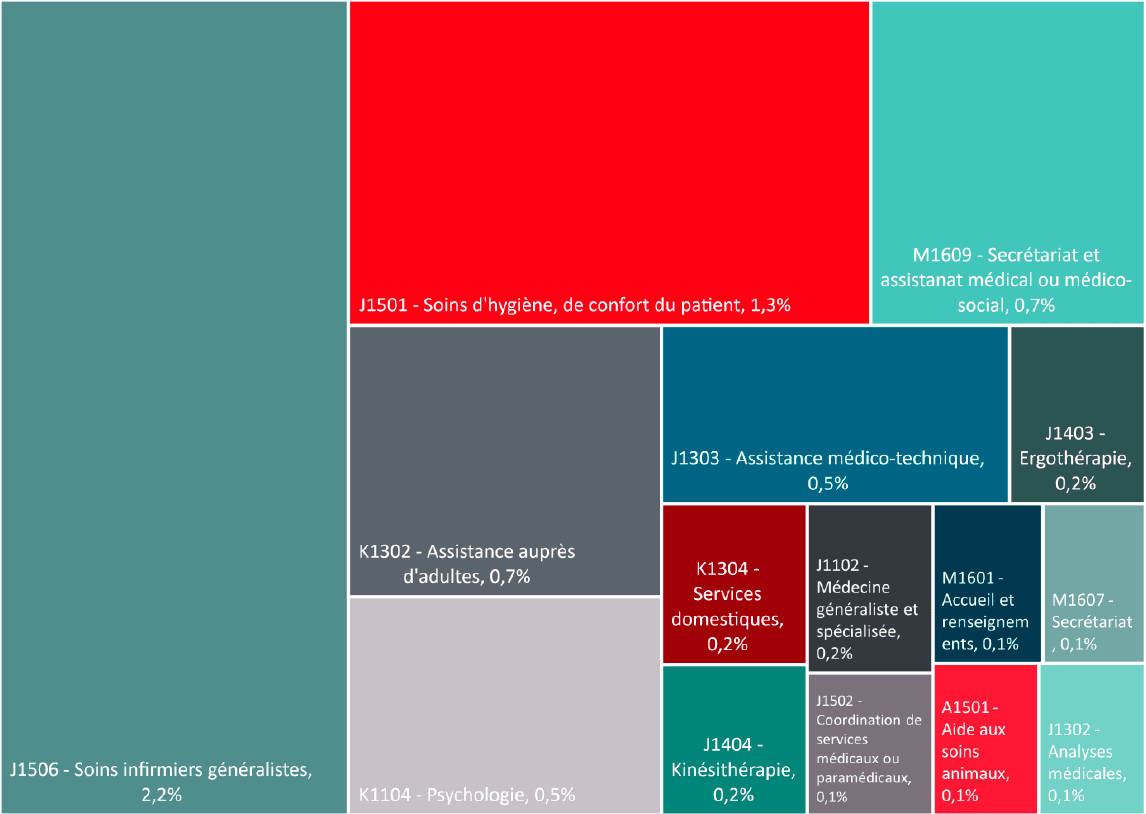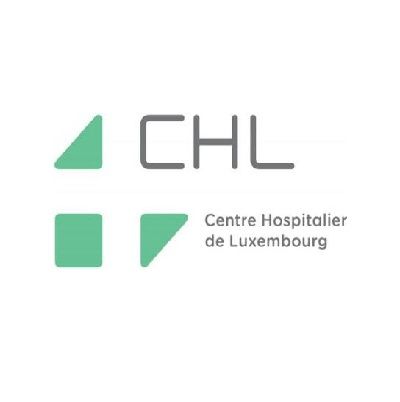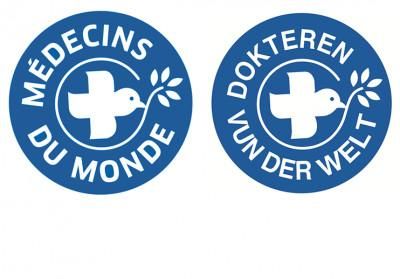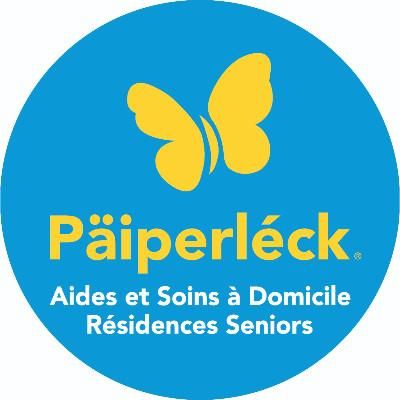
Working as a caregiver in Luxembourg: wages, requirements, documents
A career as a caregiver is a noble endeavor and a vital contribution to society. Among healthcare professionals, caregivers stand closest to patients in hospitals, ensuring hygiene, comfort, and assistance with daily tasks for the dependent.
Caregiver jobs in Luxembourg play a crucial role in healthcare, often intertwined with nursing roles. However, distinctions between caregivers and nurses are vital. While both are present in hospitals and clinics, they differ significantly in the scope of their responsibilities and qualifications, making it essential to understand the nuances when seeking opportunities in this field.
Which positions are most demanded in Luxembourg?
Due to the constant population growth, aging demographics, rising prevalence of chronic diseases, and other health issues, the demand for healthcare professionals in Luxembourg is substantial and continues to increase.
To examine the demand for caregivers in detail, we'll refer to the sectoral study conducted by the Ministry of Labor (MT) and the Employment Development Agency (ADEM) on the healthcare sector from 2020 to 2022.
This study is based on vacant positions reported to ADEM. According to the study, 13.2% of the declared positions in the healthcare sector correspond to caregivers, placing this profession second after nursing, which represents 22.1% of the positions. Following are senior aides and family support aides, accounting for 6.6% of the demand.
It's important to note that physician positions are rarely declared to ADEM, so their reported proportion of 1.7% does not accurately reflect the real market demand. Physicians are actually highly sought after, potentially even more than caregivers.

Overview of the caregiver jobs in Luxembourg
Caregivers are pivotal in the healthcare system, as they support nurses, doctors, and patients. It's important to distinguish this profession from nursing, as they differ significantly in both scope and required qualifications.
A caregiver, often working under the supervision of a nurse, is responsible for providing hygiene and comfort care to individuals who are ill or dependent. They assist those who have undergone illness, hospitalization, or permanent conditions, helping them maintain independence. Caregiving tasks include changing dressings, taking vital signs, measuring blood glucose levels, assisting with bathing and dressing, aiding in feeding and hydration, observing and reporting changes in patients, and handling patient movement and transportation.
Caregivers can operate in various settings, both public and private, including hospitals, clinics, rehabilitation centers, nursing homes, retirement homes, convalescent homes, centers for people with disabilities, or in-home care services for the elderly.
Training and skills required to work as a caregiver
If you're wondering how to become a caregiver in Luxembourg, the answer lies in pursuing a DAP (Diplôme d’Aptitude Professionnelle) training in the field of caregiving. This diploma qualifies individuals for employment as skilled workers and typically spans three years under an apprenticeship or internship contract, with a minimum of 12 weeks of practical training.
One important thing to consider, before working as a caregiver, you will need to obtain a record of no criminal offense. You can read more about it in our dedicated article in Blog in Documents section.
In addition to training and excluding the competencies specific to the profession, there are multiple soft skills necessary to exercise this profession:
How to get a caregiver job in Luxembourg?
Now we will venture into the world of caregiver jobs in Luxembourg, exploring the various employment opportunities available in different sectors and assessing the demand for these professionals in the country.
Different positions to work as a caregiver in Luxembourg
As a caregiver, there are various environments to work in, ranging from public to private settings, including people's homes. So, let's explore some of the available job positions in each environment.




Luxembourg establishments recruiting caregivers
If you're interested in the healthcare field and wondering where to find caregiver jobs in Luxembourg, we've got you covered. In this section, we'll explore the top job portals and examine the best places to find employment opportunities in Luxembourg.
Luxembourg establishments recruiting caregivers









Job portals
For comprehensive market research on job opportunities, the internet proves to be an invaluable resource. Numerous job portals host thousands of job listings, allowing users to filter by industry, location, educational requirements, or necessary work experience.
Among the international portals are eures.europa.eu (the European Union's portal), eurojobs.com, eurojobsites.com, experteer.com, indeed.com, page.com and LinkedIn.com.
For local opportunities in Luxembourg, prominent portals include jobfinder.lu, jobs.lu, monster.lu, and moovijob.com. Each portal offers a unique set of opportunities, allowing you to tailor your job search to your preferences and career goals.
Freelance and interim work as a caregiver in Luxembourg
In Luxembourg, freelance opportunities for caregivers are primarily available in certain instances, such as providing home care services. This flexibility allows caregivers to work independently and tailor their services to individual clients' needs.
Additionally, caregivers in Luxembourg can also engage in temporary employment contracts. These arrangements are common due to fluctuating demand in healthcare settings, allowing caregivers to fill short-term staffing needs or cover for absences, providing them with flexibility in their work schedules.
What else can you read on the topic of employment in Luxembourg?
You will find a variety of articles on job search, career development, and workplace culture in our dedicated section of the Blog. Check it out.
Salaries for caregivers in Luxembourg in 2024
Having explored various aspects of the caregiving profession, we now turn to a crucial point: caregiver salaries in Luxembourg. Luxembourg generally fares well in terms of salaries, with rates often exceeding the European average, and caregiver salaries are no exception. However, actual earnings depend on the specific role and individual experience.
According to Paylab, the salary for a caregiver ranges between 1600 euros and 4239 euros gross per month, which gives a first idea of the remuneration levels in the caregiver field in Luxembourg.
Wage one can count on
The salary range for caregivers professionals in Luxembourg typically spans from 1,600 euros (average minimum wage) to 4,239 euros (average highest median salary).
What papers do you need as a foreigner?
For European nationals, the process of working in Luxembourg is relatively straightforward, given the freedom to live and work in any European country. However, navigating the paperwork becomes essential if you are not a European national.
The requirements vary based on your circumstances, distinguishing between employed and self-employed roles. Additionally, familial situations, such as having a Luxembourgish or European partner, can impact the process.


Work permit in Luxembourg
Frequently Asked Questions (FAQ)
What are the educational and training requirements to work as a caregiver in Luxembourg?
To meet the demands of caregiver jobs in Luxembourg, aspiring candidates must acquire a Diploma of Professional Aptitude (Diplôme d’Aptitude Professionnelle) in healthcare assistance. This qualification equips individuals with the necessary skills and knowledge to excel in caregiving roles across various healthcare settings. Additionally, pursuing additional courses or certifications in first aid, hygiene, and specialized caregiving techniques can further enhance job prospects and qualifications for advanced caregiving positions.
Are there specific language requirements for caregivers in Luxembourg?
Language proficiency is essential for caregivers in Luxembourg, as they need to effectively communicate with patients, colleagues, and healthcare professionals. While Luxembourgish, French, and German are the main languages spoken in the country, proficiency in at least one of these languages is typically required. Additionally, proficiency in English may also be beneficial, especially in multicultural healthcare environments or when working with expatriate patients.
How in demand are caregiver jobs in Luxembourg?
Caregiver jobs in Luxembourg are highly sought after, with 13.2% of positions in the healthcare sector corresponding to caregivers, as reported by the Ministry of Labor (MT) and the Employment Development Agency (ADEM) from 2020 to 2022. This places caregivers as the second most in-demand profession after nursing, which represents 22.1% of healthcare positions.
Source: acapros.fr, jobs.makesense.org, www.ltps.lu, infos.emploipublic.fr, www.rencontres-emploi.fr, www.adiam.net, www.domusvi.com, crh.cgos.info, www.ramsaysante.fr, adem.public.lu, www.paylab.com
We took photos from these sources: ADEM, Moovijob, CDC on Unsplash